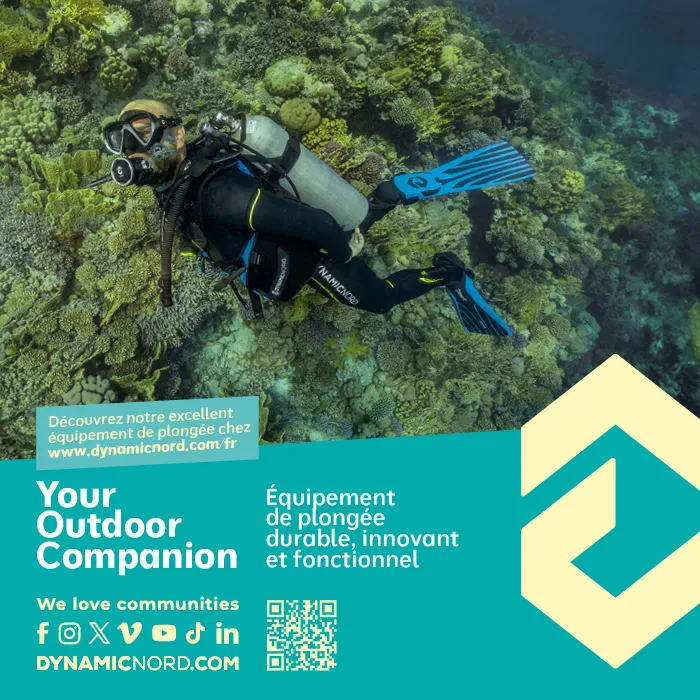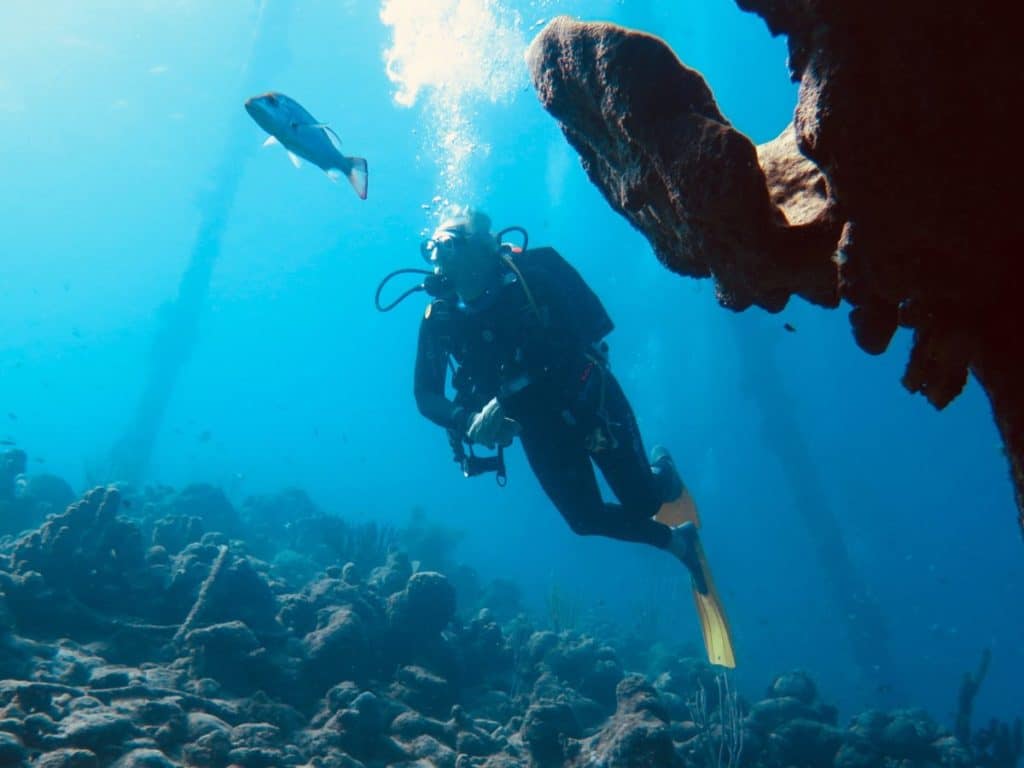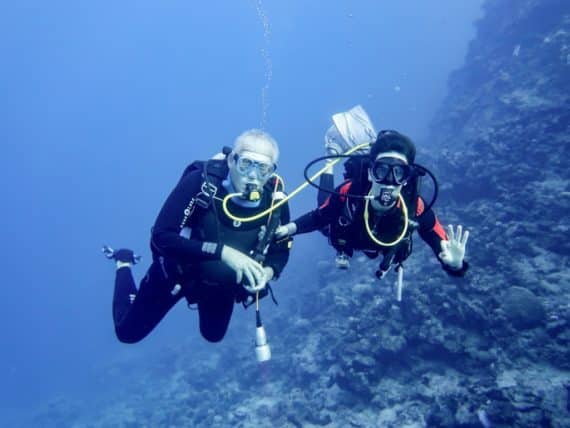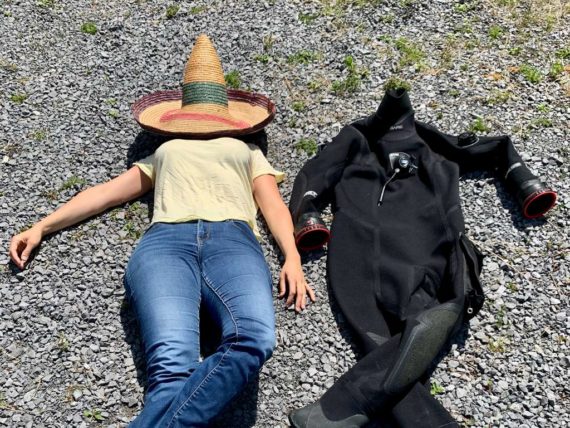When diving get’s you dizzy
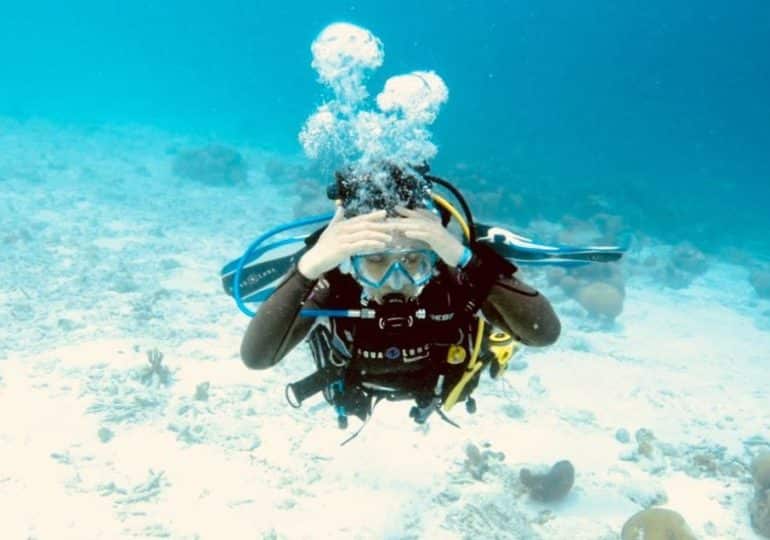
The sun was shining and I had that day with my favorite buddies planned a wonderful dive. No idea about to be dizzy.
Fortunately, I was finally cured of this nasty cold that had been dragging for a few days. I was going to be able to dive as the diving season had resumed and I listened for two weeks the stories of my Buddy with envy.
Once arrived at the dive spot and equipped, I jump into the water with delight. I love this dive spot so much (one of our Belgian quarries dark and cold but that we love so much ).
Scarcely immersed, I feel that my ears do not go really well but maybe nothing abnormal with my sinuses that remained congested so long. I was not dizzy. I slow down then a little (I don’t want to destroy my ears!), I force a little to equalize (even if I do not want to recognize it myself … the desire to dive is too strong) and, oh magic, I arrive at the planned depth decided during the briefing with my divemaster.
The dive goes smoothly, I feel good and happy to be in this element, … my element for a few dozen dives. I do not regret having answered “YES” for this great day. Around me, the flora and fauna is discreetly exposed and I observe with respect this silent nature. But already, it’s time to ascent.
As I arrive a few meters from the surface,
A great vertigo takes me, I was dizzy. No way to distinguish the top of the bottom and the violent sensation that the world is running around me at full speed without understanding what happens to me gives me a feeling of panic.
My heart is racing and I have the good luck to catch the fin of my buddy.
Seeing my frightened eyes, he reacts immediately grabbing me on one hand and signaling to me that everything is fine to reassure me on the other hand.
A few seconds later, the dizziness disappeared and, if my legs remain shaky, I find a normal state and signal to my buddy that everything is OK. Together, we ascent to the surface calmly.
But what has happened to me, I’m so Dizzy?
The phenomenon responsible for this sudden dizzy state is called alternobaric vertigo or vertigo.
Caused by a difference of pressure in the ears, alternobaric vertigo, if mild, can have serious consequences in the event of a diver’s panic that may be tempted to ascent with an excessive and uncontrolled speed.
How is alternobaric vertigo manifested?
- Sudden and severe dizzy state usually occurring at shallow depths
- A feeling of disorientation: undifferentiation of the top and the bottom
- Frequent panic (due to the two previous ones)
Note that these symptoms are transient and will decrease rapidly in seconds to a few minutes most of the time
How to manage alternobaric vertigo?
- Keep calm: this is the first thing to do (but it’s easier said than done ;-))
- Stay at the depth you are at until the symptoms disappear. Indeed, if you keep going up, the symptoms instead of disappearing risks to increase
- If possible, hang on to someone or something and look for a visual cue
- Finish the ascent very slowly to allow the pressure to equalize in the ears
Prevention of being dizzy.
- Do not dive if there is a risk that the ear is congested (during or just after a cold)
- Frequently equalize the pressure in the ears during the descent and this, from the beginning of your dive
- Do not force when equalizing
- Interrupt diving in case of persistent difficulties to equalize
- Do not use decongestants to “dive anyway”
- Seek advice from your doctor if you are regularly subjected to this type of inconvenience
And if the dizzy symptoms does not disappear?
CAUTION: If symptoms persist for more than a few minutes, you should consider the possibility of barotrauma to the ear, which may be accompanied by hearing loss and / or tinnitus, or decompression sickness. In both cases, it is advisable to consult quickly a specialized doctor and / or to start the rescue procedure.
Alternobaric vertigo, due to a difference of pressure in the ears, is a minor incident if managed well. It lies in the good management of vertigo by the diver and / or his partner.
Have you ever experienced an alternobaric vertigo and a state of dizzy?
Post a comment below … it will be a pleasure to discover how diving changes your life
Good bubbles and do not forget to be happy
Join my Facebook page for more sharing
Helene
People who read this article also like articles in this section

